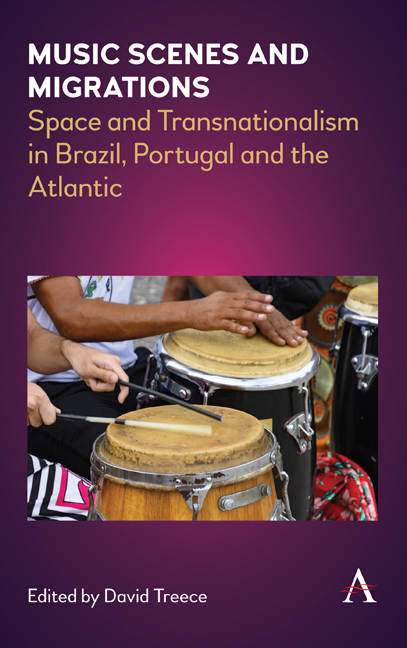Book contents
- Frontmatter
- Contents
- List of Illustrations
- Acknowledgements
- Introduction
- Part 1 Colonial and Postcolonial Transnationalisms, Migrations and Diasporas
- Part 2 Relocating Rio de Janeiro
- Part 3 Demetropolitanizing the Musical City: Other Scenes, Industries, Technologies
- Notes on Contributors
- Notes
- References
- Index
Chapter 14 - Música Pesada Brasileira: Sepultura and theReinvention of Brazilian Sound
Published online by Cambridge University Press: 20 January 2022
- Frontmatter
- Contents
- List of Illustrations
- Acknowledgements
- Introduction
- Part 1 Colonial and Postcolonial Transnationalisms, Migrations and Diasporas
- Part 2 Relocating Rio de Janeiro
- Part 3 Demetropolitanizing the Musical City: Other Scenes, Industries, Technologies
- Notes on Contributors
- Notes
- References
- Index
Summary
In 1996, the Brazilian extreme metal band Sepulturareleased the album Roots, which consolidated theinternational projection of Brazilian heavy metal and reconfiguredthe poetic-political maps of world metal. Untilthen, and with the exception of Australia, thelarge-scale production of heavy metal was mostlycentred in the northern hemisphere. This chapterconsiders key moments in the sonic trajectory ofSepultura leading up to the album Roots as events which allowus to question the linear ways in which transitionsbetween the global and the local are usuallytreated, and in order to show how the ‘Brasilidade’(Brazilianness) conveyed by the music of Sepulturacontributes to a realignment of the ways in whichmusical genres and scenes are articulated. At thesame time, I will argue, the success of Sepultura'sinternational trajectory and the affirmation of its‘Brasilidade’ have resignified the territorialitiesof heavy metal, introducing heaviness as an elementof tension within the notion of Brazilian PopularMusic (MPB).
Beyond the Local and the Global: IntensiveMultiplicities
This chapter does not directly address the mapping ofmusical genres or the cartography of a musicalscene. Instead, it addresses the possiblearticulations between these important elementswithin the universe of popular music. Taking the‘Brasilidade’ conveyed by the Sepultura sound as apoint of departure, I propose to observe howtransformations in the codes of the metal genre andthe international recognition of a ‘Brazilian heavymetal scene’ are connected to narratives ofconfrontation that have served as the basis forbuilding a category which we shall refer to here asHeavy Brazilian Music:
If we consider these suggestions to think aboutthe relation between global, local and peripheralgenres or scenes, these categories do notdisappear, but become even more complex, sincethey will not be – we insist – points of departurefrom the researcher's observation, but (alwaysprovisional) points of arrival, at the end of along process where mediators acted to ‘produceglobality’ or ‘produce locality’. (Pereira de Sá2014, 46)
- Type
- Chapter
- Information
- Music Scenes and MigrationsSpace and Transnationalism in Brazil, Portugal and the Atlantic, pp. 155 - 164Publisher: Anthem PressPrint publication year: 2020

